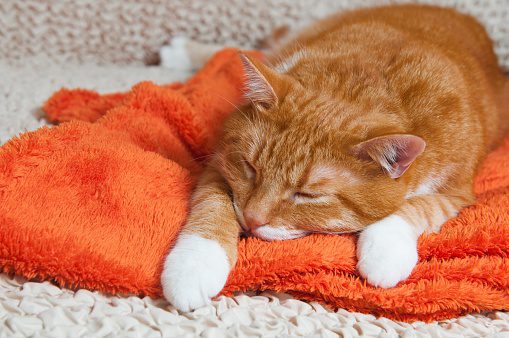
by Sara Barnhart, DVM
Cats are masters of hiding signs of illness or pain. They are prey animals as well as predators in the wild and have evolved the ability to hide disease, even when it is serious.
This can make identification of illness very challenging for the cat owner and it is very important to seek medical care if you notice any of the following subtle symptoms that something may be wrong:
Inappropriate Elimination
A cat that urinates or defecates outside of the litter box is telling you that something may be wrong. Urination outside of the box can indicate multiple issues, including diabetes mellitus, kidney disease, lower urinary tract disease (infection, bladder stones and stress-related bladder inflammation), hyperthyroidism, stress, or cancer. Defecation outside of the litter box can indicate problems with the gastrointestinal tract such as inflammatory bowel disease, parasites, constipation, stress, or cancer. Getting into and out of the box can also be painful for cats with arthritis or musculoskeletal issues.
Changes in Vocalization
Changes in pitch and sound of a cat’s meow may indicate that there is a problem in the area of the larynx or that a systemic illness is occurring. Cats that vocalize or howl more than usual may be suffering from hypertension, hyperthyroidism, pain, or stress.
Bad Breath
Cats may not always have the freshest breath, but a sudden change in odor may indicate significant dental disease, oral cancer, or even an underlying systemic illness such as kidney disease.
Changes in Activity
A decrease in activity or change in daily routine may be a general indicator of illness.
Changes in Food or Water Consumption
Decreased or increased water and/or food consumption may be an indicator of various illnesses. Increased water consumption may be a result of kidney disease or diabetes mellitus. Increased food consumption especially in the face of weight loss may indicate gastrointestinal disease or hyperthyroidism. Decreased food and water consumption may occur secondary to a variety of illnesses, all of which are serious.
Changes in Social Interactions
Cats are typically social and enjoy interacting with their family and other pets. Changes in interactions with others in the household may indicate pain, stress, or illness.
Changes in Grooming Behavior
A decrease in typical grooming behaviors may be a sign of some underlying health issue. It may indicate pain, anxiety, decreased energy, or may be secondary to obesity and the inability to groom. Over-grooming with loss of fur may indicate a skin issue or psychological issue.
Changes in Sleeping Habits
Cats normally sleep during a large portion of the day. When they seem to be sleeping more than usual, it could be a sign of an underlying disease process. If they are sleeping much less than usual, it may indicate hyperthyroidism, pain, or stressors within the household.
All of the above subtle signs of illness in cats may not be easy to pick up, especially if the changes are gradual. Veterinary wellness exams once to twice yearly are especially important for this reason—they can prevent many diseases and illnesses from reaching an advanced stage and keep our kitties happy and healthy.
Recent Posts
About Us
Ann Arbor Animal Hospital is a locally-owned animal hospital operating for over 90 years in Ann Arbor, MI.
